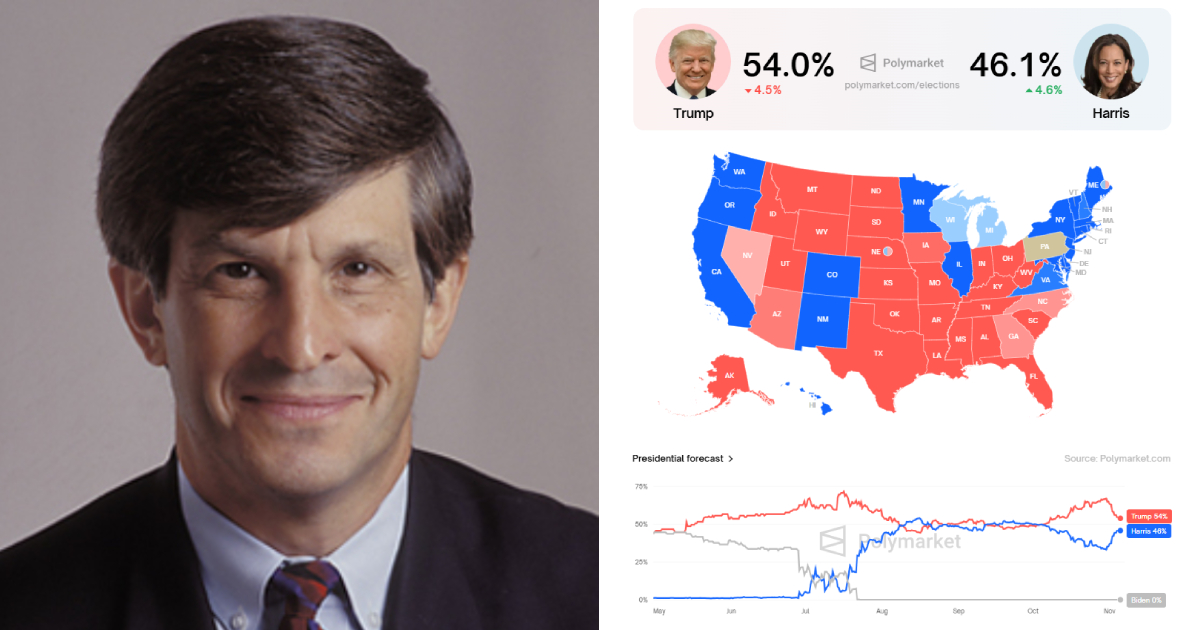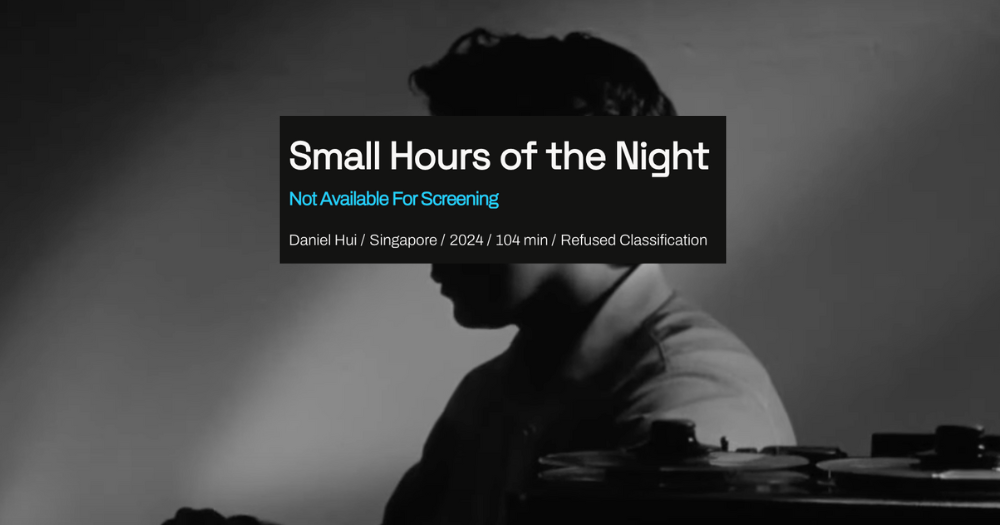ADVERTISEMENT
Professor who predicted 9 of last 10 US presidential elections picks Harris, betting markets favour Trump
Will it be as close as most people think it is?

The 2024 U.S. presidential election between Kamala Harris and Donald Trump will go down in history as one of several elections over the years that was just too close to call.
However, American historian and election forecaster Allan Lichtman (pictured above), 77 has called it: He is predicting a Harris win.
ADVERTISEMENT
Track record
And he has the track record to back him up, as it is not just all talk.
The American University history professor has correctly predicted the victor of the last nine out of 10 presidential elections since 1984.
He only got the 2000 election wrong after he picked Al Gore to beat George W. Bush — but depending on who you ask, that election was arguably stolen.
His "13 keys" method of predicting a winner
Lichtman bases his predictions on the answers to a set of 13 true-or-false questions, which he calls “keys”.
In 2016, he famously stuck to his prediction method that Trump would win when the polls said otherwise.
Lichtman developed his method in 1981 with a collaborator.
According to them, it was the performance and strength of the incumbent party in the White House that has the most bearing on the election result.
Each of the 13 keys can be defined as a true-or-false statement.
The incumbent-party candidate will win if eight or more are true.
Seven or fewer, they will lose.
And here are the 13 keys:
1. Incumbent-party mandate: After the midterm elections, the incumbent party holds more seats in the U.S. House of Representatives than it did after the previous midterm elections.
2. Nomination contest: There is no serious contest for the incumbent-party nomination.
3. Incumbency: The incumbent-party candidate is the sitting president.
4. Third party: There is no significant third-party or independent campaign.
5. Short-term economy: The economy is not in recession during the election campaign.
6. Long-term economy: Real annual per capita economic growth during the term equals or exceeds mean growth during the two previous terms.
7. Policy change: The incumbent administration effects major changes in national policy.
8. Social unrest: There is no sustained social unrest during the term.
9. Scandal: The incumbent administration is untainted by major scandal.
10. Foreign or military failure: The incumbent administration suffers no major failure in foreign or military affairs.
11. Foreign or military success: The incumbent administration achieves a major success in foreign or military affairs.
12. Incumbent charisma: The incumbent-party candidate is charismatic or a national hero.
13. Challenger charisma: The challenging-party candidate is not charismatic or a national hero.
Harris' chances
Lichtman says that keys 2, 4, 5, 6, 7, 8, 9, and 13 are true this year.
This is enough to assure a Harris victory.
But as some of Lichtman's critics have pointed out, how easy is it supposed to be to just go by a gut feeling if a statement is true or false?
ADVERTISEMENT
For example, for statement 13, some will deny that Trump has "challenger charisma".
But his supporters would surely think he possesses it.
Betting market favouring Trump win
And if you aren't digging this method of picking a winner, maybe you could look elsewhere: Such as Polymarket, which is one of many political betting markets that are increasingly becoming a thing.
Over at Polymarket, the odds in favour of a Trump win are slightly higher on Nov. 4 (Singapore time) than a Harris win.
How the Polymarket betting system works is that it allows punters to make a choice with a stake on who they think will win.
In return for a correct answer, they win money via cryptocurrency.
The reason that so many, including academics, are looking at betting markets is because people actually have skin in the game.
Some, in fact, might have too much.
Betting market prone to being skewed by whales
The Wall Street Journal reported that a French investor bet US$30 million on a Trump win weeks before polling day.
That one bet skewed the market by upping Trump's odds of winning.
If all his bets were to pay off, the anonymous French punter stands to walk away with US$80 million.
Currently, Polymarket is not technically allowed to operate in the U.S., but the trend is catching on.
For those who want to observe smaller bets with limits without whales distorting the betting pool, they are looking to PredictIt.com, which is populated mostly by academics who can at most stake several hundred dollars per bet.
A little backstory
Interestingly enough, Lichtman does not see eye-to-eye with Nate Silver, the prominent election modeller and statistics guy.
He called Silver "a compiler of polls" who "has no fundamental basis in history and elections".
Lichtman has made his feelings known on X, formerly Twitter.
Silver is an adviser to Polymarket.
Odds of being wrong?
One thing to note: Polymarket and its ilk might not be completely reliable for crystal balling.
The market odds on a Donald Trump victory were about 35 per cent on election night in 2016, and yet he prevailed.
Conclusion?
All eyes are on Lichtman as his track record, his reputation, and famous method of calling elections is on the line.
On the other hand, the wisdom of the crowds is also being tested and they might be overwhelmed in the moment due to "irrational exuberance".
With hindsight always 20/20, you can bet on one thing though: One conclusion you could draw after the results are out is that the election might not even have been that close to call.
But if the signs were always there, why aren't you seeing it now?
ADVERTISEMENT
Top photos via American University & Polymarket
ADVERTISEMENT
ADVERTISEMENT
MORE STORIES





















